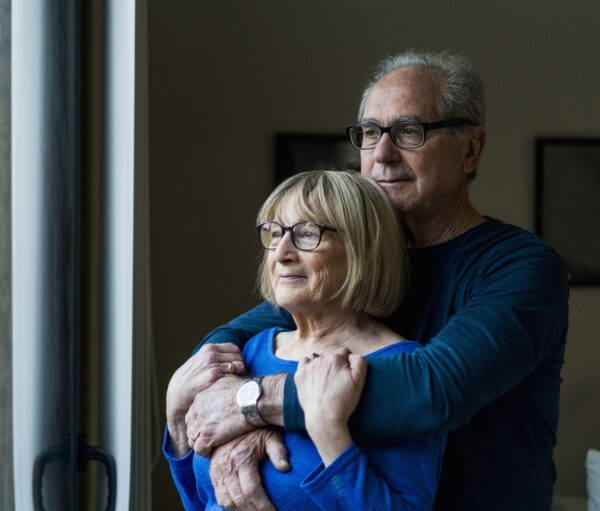Couples Can Share High Blood Pressure

Imagine your blood vessels as tiny hoses running all through your body. When your heart beats, it pumps blood through these hoses. If the blood pushes too hard against the walls of these hoses, that’s high blood pressure. Doctors will say you have high blood pressure if your numbers are usually 130 over 80 or higher.
If high blood pressure is not controlled, it can lead to big health problems like heart attacks, strokes, and kidney disease. It can also exacerbate other health issues that are common in older adults, such as vision problems, memory issues, and an increase in the long-term risk of dementia. The tricky part is that high blood pressure doesn’t usually have signs you can feel. That’s why it’s sometimes called a “silent killer.” The only way to know if you have it is to get your blood pressure checked regularly.
A new study from the University of Michigan tells us that if one spouse has high blood pressure, the other spouse is more likely to have it, as well.
“Many people know that high blood pressure is common in middle-aged and older adults, yet we were surprised to find that among many older couples, both husband and wife had high blood pressure in the U.S., England, China and India,” said researcher Chihua Li, Dr.P.H. “For instance, in the U.S., among more than 35% of couples who were ages 50 or older, both had high blood pressure.”
That’s why if one spouse is diagnosed with high blood pressure, the other person should follow up with their healthcare provider and get their blood pressure checked.
Prevention and treatment
High blood pressure, also referred to as hypertension, can be prevented. It is one of the most modifiable cardiovascular risks. Eat a healthy diet of foods low in salt and fat, such as fruits, vegetables, and lean meats. And make sure to exercise regularly. No need to become a bodybuilder overnight—simply walking every day can help keep your blood pressure down.
The study suggests that these interventions are best implemented among both spouses. “Making lifestyle changes, such as being more active, reducing stress, or eating a healthier diet, can all reduce blood pressure,” said Bethany Barone Gibbs, an associate professor at the School of Public Health at West Virginia University. “However, these changes may be difficult to achieve and, more importantly, sustain if your spouse or partner (and greater family unit) are not making changes with you,” she said.
If you already have high blood pressure, there are ways to treat it. The first step is to live a healthy lifestyle by eating right and exercising. There’s a genetic risk for hypertension. Sometimes despite one’s best efforts, people may still need medication. There are many kinds of blood pressure medicines and they work in different ways. Some help your body get rid of extra water and salt. Others make your blood vessels relax so blood can flow more easily.
It’s important to take your medicine exactly how the doctor tells you. Don’t stop taking it or change the amount without talking to your doctor first. Even if you start feeling better, you need to keep taking your medicine.
Return for regular check-ups. The doctor will check your blood pressure and make sure your medicine and lifestyle changes are working. If not, they might need to make some changes.
Older couples should know that high blood pressure is serious, but there are things you can do to prevent or treat it. And making your lifestyle healthier together with your spouse is one of the best ways to ensure you both succeed.


